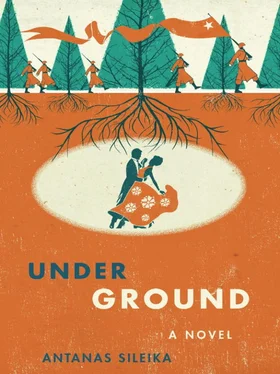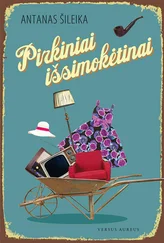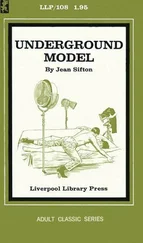Now that the spring thaws had begun, the partisans could come out of their burrows from time to time, and the shoemaker could visit them. The shoemaker did not mind staying with the partisans as long as there was enough to eat and the men appreciated him, admiring his work and thanking him extravagantly, far more than customers who paid for their repairs with money. It was almost like being with a hunting party. The shoemaker spent his time more happily among these men than he had anywhere in years, even though his wife would scold him for being away so long and coming home with no money.
At his house in Merkine, his wife kept the vegetable garden, a cow and a goat, and he returned every week or two, depending on the season and his business. She was the only person who made him hesitate about retiring in town once the other cobbler died. Sometimes there were moments of tenderness when he returned from a long walk among the farms and hamlets, especially if he brought home a little money. What would happen to those moments of tenderness if they lived together all the time?
After finding the prayer book in the river, the shoemaker took half a day of circuitous forest travel to reach Flint’s camp. He told Flint his story and gave him the prayer book, and then set himself up by the fire, opening the wooden box he carried on a leather strap over his shoulder. Soon he was working on a pair of boots that needed new heels, and three men waited their turn, having no other shoes but the ones they wore on their feet.
Flint sent a pair of scouts to find out how a prayer book had ended up in the river, and they came back with news soon enough. Three partisan couriers had stumbled upon a Cheka ambush and there was a firefight. The partisans withdrew as far as the river, and when their ammunition ran out, they opened their packages and flung their documents, letters and belongings into the river to keep them out of enemy hands, and continued to fire until they ran out of ammunition altogether. Then they blew themselves up.
Flint reflected on the news as the men stood about, downcast. “Did they manage to destroy their faces?” Flint asked the scout.
The families of dead partisans were singled out for harassment, sometimes for prison or deportation. Those killing themselves tried to destroy their distinguishing marks, particularly their faces, but whether the faces were destroyed or not, the Chekists set the bodies up in the marketplace as a kind of display. The Chekists took away their shoes and socks so the bodies looked poor, and sometimes they ordered people to beat the dead bodies with sticks.
The Lithuanians were somewhat used to these types of displays. As far back as 1863, when Murayev “The Hangman” had been sent by the czar to suppress rebellion and the dead were permitted to rot on their nooses, displaying corpses was a means of inflicting terror. The Chekists watched to see who reacted.
The job of identifying the dead was often left to old women, bobos , kerchiefed grandmothers, widows or beggars. Not even the Cheka bothered to imprison or deport them. Grandmothers knew the bodies of the young men well; they had taken care of them since childhood. A mole on the palm of the hand, a signature scar, a deformed thumbnail—any of these signs was enough. But how was an old woman to keep from crying out in grief if she saw such a sign?
Flint did not know these particular partisan couriers; his men were all accounted for. They must have belonged to a neighbouring band.
He couldn’t let the spring begin like this, with a defeat within his territory. It would not do for morale. And the thought of the bodies lying in the town square was unpleasant.
“This is so very sad,” Flint said to the men gathered around for a meeting at the camp where Lukas and Vincentas had first met him. “But being sad all the time won’t do us any good. I think we should teach the Cheka some respect.”
Lukas agreed along with the others that it would be good to act. He had not been away from the camp since the incident on the road. His study of English was not going well. Sometimes Flint would come to the communications bunker and listen to the French news, which he understood, and then translate it back to Lukas. But Flint wanted the BBC news. He believed that hope lay with the Anglo-Saxons, who were closer to the Americans.
And it would be good to get out for the sake of Vincentas, who was spending more and more of his evenings praying. Maybe this was natural for a man who intended to be a priest, but Lukas wondered what he could say to God over two hours that couldn’t be said in half that time. Or less.
Lukas missed his home, but he missed his university residence and his student friends even more. He had been on the brink of a new and better life, but that life had receded from him now. The only hope of ever bringing it back was to fight.
It took a day to make contact with the neighbouring partisan bands and draw up plans to seize Merkine. It would show the Chekists they could not act with impunity. Six bands would attack different objectives simultaneously, and an assassin would shoot the two most ardent Reds in town. Others would bring back the bodies in the marketplace.
Flint sent the shoemaker home to Merkine and told him to take his wife to another town and visit relatives for a few days. The shoemaker tried to do as he was told, but when he got home his wife was not tender at all, and she was in no mood for travelling on the muddy roads of spring. She called her husband a fool to his face for trying to get her to travel. She repeated her complaints about her husband to the women she saw every day after morning Mass, and word of his pressing need to leave town began to filter through to his neighbours.
Vincentas and Lukas were in a small band of six men led by Lakstingala. Their job was to destroy the stone and stucco house that served as the main office of the slayers, and to make sure they could complete the task, they had been issued a panzerfaust , a rocket launcher to be fired by Ungurys. Lakstingala saw the prayer-obsessed Vincentas as the weak link in the group, and assigned him the job of runner, whose responsibility it was to get news to Flint’s group, which was going to take the police station across town and destroy the records there.
The six men in Lakstingala’s group stood behind a grove of pines on the edge of town, the first houses visible fifty metres away. It had been snowing, and there were already ten centimetres on the ground, which would make running hard, but if the snow kept up, at least it would mask their footprints when they retreated.
Lakstingala and Ungurys each wore white camouflage, but there had not been enough to go around for the others. The men had been standing in their positions since before dawn, waiting for the firing on the other side of town that would be their signal to attack. Lukas’s feet and fingers were cold. He kept his hands tucked under his armpits, but he could do nothing about his feet.
A few shots came from the other side of town. These were followed by sporadic automatic fire. Finally the rate of fire picked up and a couple of grenades went off in the distance. Three hundred metres to the right, Flint and a dozen men began to run across the open ground toward the edge of town, hunched over and with their rifles and light machine guns in their hands.
“This is it. Forward!” said Lakstingala.
They were barely out of cover when the flash of gunfire from the window of a wooden house started up, and snow flew as the bullets struck about their feet. They were expected.
“Down,” shouted Lakstingala.
The men were each a few metres apart and fell into the snow, and then began to crawl forward, returning fire.
In his grey woollen coat, Lukas felt all too visible against the snow. Some of it had flown up his nose, and the snow beneath him was so wet that he would be soaked if he lay there long. At this rate it would take many minutes before the others were close enough to throw a hand grenade into the open window, and even lying flat they would be all too easy for the sniper to pick off.
Читать дальше












